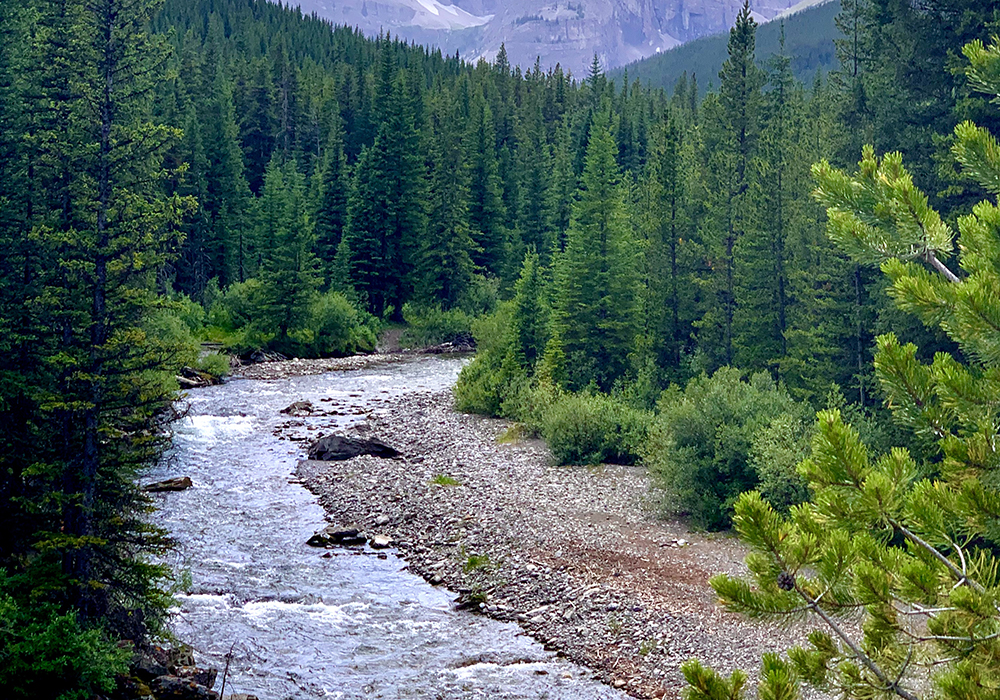Environmentalists, landowners suspicious that process will focus on views on development but not on the environment
The provincial government’s handling of upcoming public consultations about open-pit coal mining along the Eastern Slopes of Alberta is an exercise in smoke and mirrors, said a ranch owner.
“I have never in all my years seen a government that works so hard to do the wrong thing,” said Bobbi Lambright, secretary and director of the Livingstone Landowners Group.
The provincial government has posted on its website the terms of reference for the committee expected to conduct the consultations.
Read Also

Farming Smarter receives financial boost from Alberta government for potato research
Farming Smarter near Lethbridge got a boost to its research equipment, thanks to the Alberta government’s increase in funding for research associations.
Despite concerns by many residents about the potential impact of open-pit coal mines in terms of land and water use, the terms of reference said the committee’s mandate “will only focus on matters related to coal that are under the administration of the Minister of Energy,” who is Sonya Savage.
After widespread public opposition, Savage announced Feb. 8 the provincial government was reinstating a 45-year-old provincial coal policy first implemented in 1976. It was rescinded last year by the provincial government, easing the development of open-pit coal mines on the Eastern Slopes.
It raised fears that toxic levels of contaminants such as selenium could enter the Oldman River system.
Thirty-five faculty members in the Department of Biological Sciences at the University of Alberta told Alberta MLAs in a letter April 16 that they were deeply concerned about the Alberta government’s actions.
The scientists include two fellows of the Royal Society of Canada, two Canada Research Chairs, and one Campus Alberta Innovation Program (CAIP) Chair. The letter was in support of a private member’s bill by the Alberta NDP that aims to protect much of the Eastern Slopes from open-pit coal mining.
“Decades of research by scientists from all over the world have shown that young animals, whether they be flies, fish or humans, are acutely sensitive to toxins dissolved in water,” said the letter.
“There is no reliable method to stop leaching of hazardous waste produced by surface coal mining into groundwater where, inevitably, it will pollute precious watersheds we all depend on that are already under severe stress.”
The private member’s bill was unexpectedly given unanimous consent April 13 to be addressed, but likely won’t be debated before the end of the current sitting because of scheduling.
Alberta NDP leader Rachel Notley said April 13 she suspected the governing United Conservative Party (UCP) allowed the bill to go through to committee “because they don’t want to be caught voting it down.”
The letter by the scientists asked MLAs to support immediate debate of the bill in the legislature.
However, UCP MLAs voted April 19 against immediate debate, meaning the bill is “unlikely to be debated and will die on the order paper,” said an NDP statement.
The terms of reference for the consultation committee do not mention the environment. The four-page document instead said the “engagement, report and recommendations will describe Albertans’ understanding of the coal policy and consider their objectives for development of coal in Alberta.”
It said the public engagement process will be guided by questions such as “under what conditions would Albertans support coal development?”
Other questions include “do Albertans perceive Alberta as one of the world’s jurisdictions with responsible development?” and “are Albertans aware of the legislation and regulations that govern coal development?”
Ian Urquhart, conservation director of the Alberta Wilderness Association, said in a statement the terms of reference contradict Savage’s reassurances March 26 that public consultation would be an “open conversation” and that “there’s definitely not a predetermined outcome.”
However, a spokesperson for Savage defended her in an email.
“Our goal is to ensure the government’s approach to coal reflects the best interests of Albertans and will balance stringent environmental protections and the approach to resource development going forward,” said Jennifer Henshaw, senior press secretary for the Office of the Minister of Energy.
“Albertans have clearly told us that they want a say in how the province will manage coal — and that’s why we have embarked on widespread engagement.”
She said the engagement “is largely focused on the aspects of coal that sparked public concern after the 1976 Coal Policy was rescinded in June 2020 — for example, the protections outlined under the coal categories.”
Henshaw added the committee “would not be looking at broader land use planning or water allocations which go beyond the scope of coal.”
Lambright said the government’s actions are “shrouded in smoke and mirrors.
“And it’s intended to make people believe one thing while they go about doing another, and I mean, that is just wrong.”
The terms of reference said the committee is to conduct public engagement between March 29 and Sept. 15. A final report on the engagement is to be submitted Oct. 15, with a report with recommendations to the Minister of Energy to be filed on Nov. 15.


















